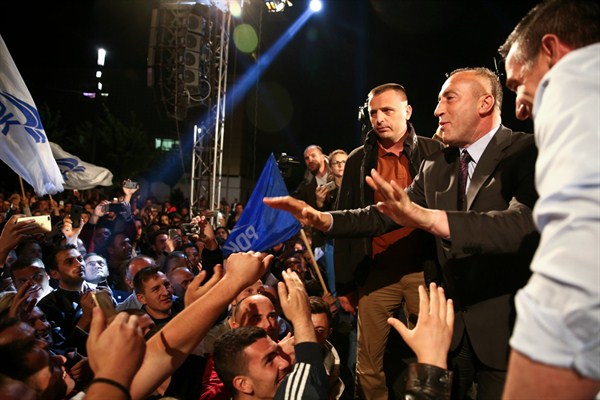Belgrade, SERBIA—Nearly a decade after its disputed declaration of independence and on the heels of a snap election last month, Kosovo is sending mixed signals to the world. Where some see a radical leftist surge that will force Kosovo’s neighbors and the international community to take notice, others see a further fraying of the West’s influence. And while some see progress toward the creation of a more functional state, for others the result of the June 18 election fundamentally confirms the status quo, for better or worse.
The left-wing Levizja Vetevendosje, or Movement for Self-Determination, emerged as the largest single party in parliament with 27 percent of the vote, twice its previous share. Widely seen as an Albanian nationalist organization, Vetevendosje made headlines worldwide last year by repeatedly letting off tear gas in parliament, in order to stop proceedings in protest of political negotiations with Serbia.
Despite Vetevendosje’s performance, it came in second overall to an alliance of parties led by the Democratic Party of Kosovo (PDK) and the Alliance for the Future of Kosovo (AAK), which won 34 percent of the vote. The PDK and the AAK are each associated with the Kosovo Liberation Army (KLA) that fought against Serb forces in the 1998-1999 war. Another grouping of parties led by the PDK’s former coalition partner, the Democratic League of Kosovo (LDK) of outgoing Prime Minister Isa Mustafa, came in third with 26 percent of the vote.

